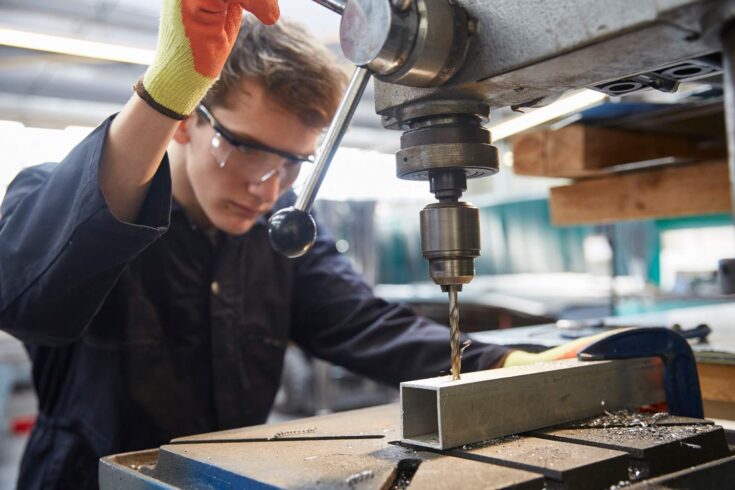The transforming foundation industries challenge team is pleased to share the findings from our latest study, completed by the Innovation Caucus. The study explores the innovation intentions of micro, small and medium sized enterprises (SMEs) in the foundation industries.
The foundation industries play a vital role in the UK economy. The foundation industries have a combined annual turnover of £67.5 billion and employ more than 250,000 staff, whilst also underpinning the UK’s manufacturing supply chains.
There is a lot of pressure upon the foundation industries to take on more sustainable practices because:
- we are at such a crucial time in our journey to net zero
- foundation industries are currently contributing 10% of all of the UK’s carbon dioxide emissions.
SMEs (firms with fewer than 249 employees) represent over 98% of the foundation industries businesses and have a large part to play in the journey to net zero. However, whilst medium sized businesses show relatively high rates of innovation, small and micro firms are less likely to be innovation active. Even fewer firms were found to be innovating in response to environmental concerns.
Unlocking potential
The transforming foundation industries challenge had previously looked into some of the barriers to innovation, which included:
- risk
- costs of innovation
- under-developed management and leadership skills
- mindsets resistant to collaboration and innovation
- other external pressures.
But to fully understand how to best support non-innovating small businesses, we also needed to understand innovation appetite. This includes:
- willingness (openness to change and growth)
- capability (access to resources)
- capacity (ability to commit resources to drive change).
This will allow us to identify companies who have the right attitudes towards innovation to support and unlock the capability and capacity to grow their businesses.
The team at the Innovation Caucus helped us develop a conversational tool, allowing these aspects of innovation behaviours to be identified and recommendations made. During development, they also surveyed a number of SMEs to better understand common profiles.
Current innovation activity
Overall, foundation industry SMEs were found to demonstrate strong willingness to innovate frequently, and most have plans for future innovation. However, a tendency was found to define innovation broadly, to include all changes and improvements to products, processes, or practices.
This means that they appear enthusiastic about incremental innovation, but may be less open to more transformational industry-leading activities in the absence of external incentives. This allows us to better analyse how grant funding and support is positioned.
The innovation capability of foundation industry SMEs was found to be strongly influenced by their suppliers and customers, who can provide valuable incentives to innovate. This suggests that interventions to encourage innovation across the supply chain could potentially enhance performance upstream and downstream.
It has been interesting to see that there is relatively low engagement of these firms with other potential innovation partners, such as:
- universities
- further education colleges
- research organisations
- knowledge transfer networks
- industry associations
- other government agencies.
Encouraging dialogue
The question of how to encourage this dialogue is an interesting and important one that we will be working with such partners to explore.
The innovation capacity of micro and small foundation industry enterprises was found to be negatively influenced by instability or unpredictability in customer orders and revenue streams.
Cost considerations most often influenced hesitancy to innovate. There is a reluctance to divert resources from existing business streams to research and development or other innovation activity. And, external grants were not widely seen as suitable for the types of incremental research and development and innovation that firms were undertaking.
However, significantly, whether they could allocate the time was often a deciding factor in whether these micro and small firms took steps to implement innovation in their day-to-day activities. Time was identified as a hidden and valuable resource and we will be exploring how to support dedicated time from leadership to innovation activities.
How will the tool be used?
We are now looking to support organisations to deploy the tool and identify high potential businesses within the foundation industries for us to support. If you work in an SME support role, we would love to hear from you! This will help us to refine the support on offer to SMEs within the foundation industries and assist the sector in thriving for a sustainable future.
Find out more
The full report can be found on the Innovation Caucus website alongside an accompanying blog from the team at the Innovation Caucus.
Top image: Credit: pablo_rodriguez1, E+ via Getty Images




